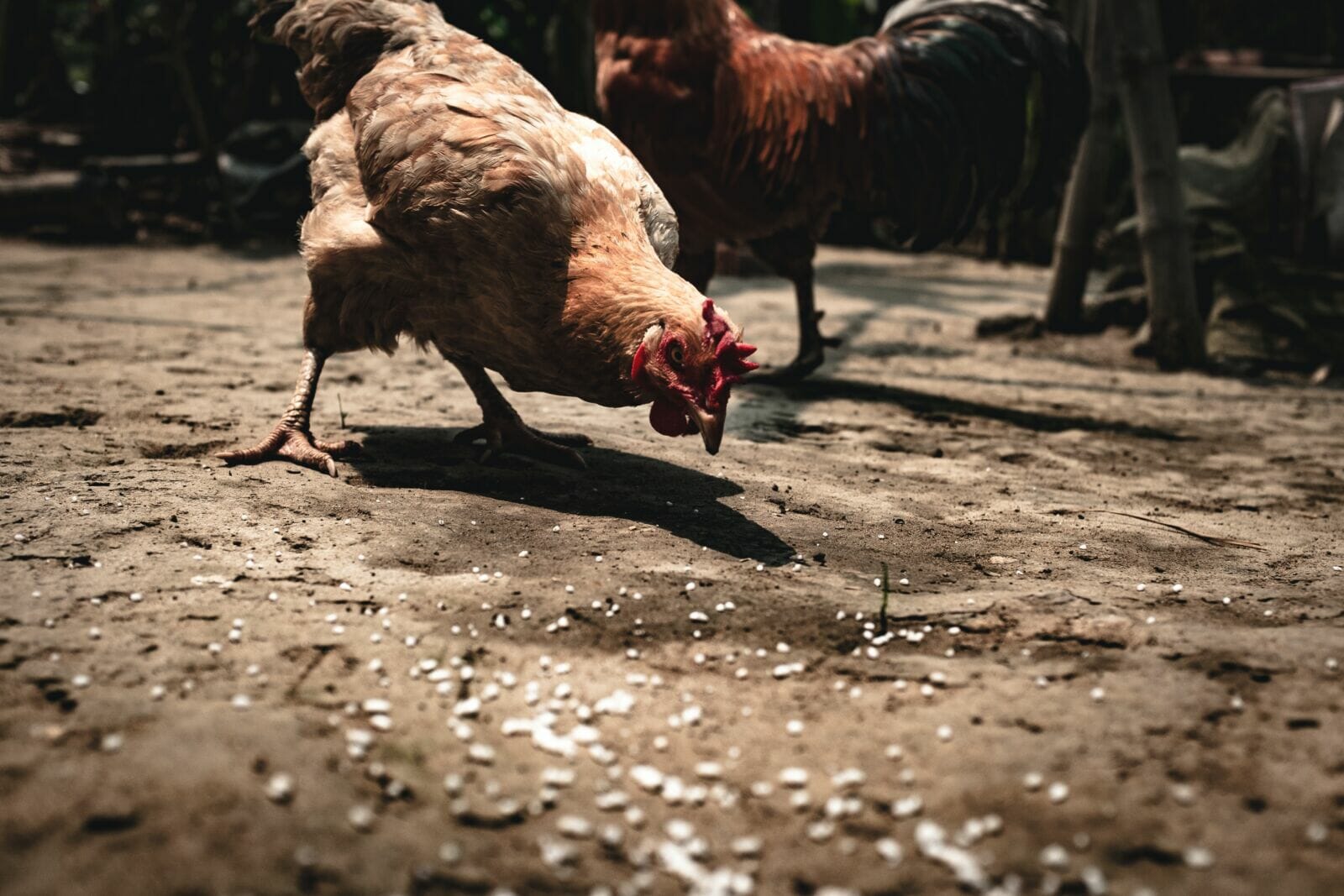Ensuring a healthy and productive environment for your chickens is crucial for their well-being and your farm’s success. A well-maintained habitat not only promotes better health and higher egg production but also contributes to the overall happiness of your flock. Let’s explore effective strategies to optimize your chickens’ living conditions.
The Ideal Coop Design
Proper Ventilation and Space
Good ventilation is essential for maintaining a healthy chicken coop. Chickens, like all living beings, need fresh air to thrive. Proper airflow helps reduce the buildup of ammonia from droppings, which can be harmful to their respiratory systems. Make sure your coop has adequate windows or vents that can be opened and closed depending on the weather. Additionally, providing enough space for each chicken is crucial. Overcrowding can lead to stress, feather pecking, and the spread of diseases. As a general rule, allocate at least 2-3 square feet per chicken inside the coop and 8-10 square feet per chicken in an outdoor run. When designing your coop, consider adding multiple levels or perches to maximize space and provide your chickens with more room to roam.
Choosing the Right Location
Where you place your chicken coop can significantly impact your flock’s health. Choose a location with good drainage to avoid muddy conditions that can harbor bacteria. It’s also beneficial to have some shade to protect the chickens from extreme heat. A commercial chicken house can be an excellent option for those looking for flexibility in positioning their coop. These portable structures allow you to rotate the coop to the fresh ground regularly, providing your chickens with clean foraging areas and reducing the risk of disease buildup in one spot. This mobility also allows you to move the coop to more sheltered areas during extreme weather, ensuring your chickens are always in the best possible environment.
Enhancing Chicken Health with Nutrition
Balanced Diet Essentials
A balanced diet is the cornerstone of a healthy flock. Chickens require a mix of carbohydrates, proteins, fats, vitamins, and minerals. Ensure their feed includes grains, seeds, and a quality commercial layer feed to meet their nutritional needs. Fresh water is equally important; always provide clean water to prevent dehydration and promote digestion. Regularly changing the water and using containers that are easy to clean can help maintain water quality. Additionally, supplementing their diet with kitchen scraps like vegetables and fruits can provide essential vitamins and minerals.
Organic and Natural Feeding Options
Many chicken keepers are turning to organic and natural feeding options to boost their flock’s health. Organic feed, free from pesticides and artificial additives, can lead to healthier chickens and higher-quality eggs. Additionally, allowing chickens to forage for bugs, grasses, and seeds not only supplements their diet but also provides mental stimulation. Encouraging natural behaviors like scratching and pecking helps keep chickens active and engaged. You can also grow your own chicken-friendly plants, such as herbs and greens, to provide fresh, organic supplements to their diet.
Daily Care and Maintenance
Routine Cleaning and Hygiene
Maintaining a clean coop is vital for your chickens’ health. Regular cleaning helps prevent the buildup of harmful bacteria and parasites. Remove droppings daily and perform a thorough cleaning of the coop at least once a month. Use a mild disinfectant and ensure the coop is completely dry before allowing chickens back inside. Keeping the coop dry and well-ventilated can also help reduce the risk of respiratory infections. Regularly replacing bedding material can further enhance the cleanliness and comfort of the coop.
Regular Health Check-ups
Frequent health check-ups are essential to catch any potential issues early. Observe your chickens for signs of illness such as lethargy, loss of appetite, or abnormal droppings. Regularly check for external parasites like mites and lice. If you notice any health concerns, consult with a veterinarian who specializes in poultry. Early detection and treatment of illnesses can prevent the spread of disease and reduce the risk of serious health problems. Keeping a health log for each chicken can help you track any changes or concerns over time.
Enrichment and Stimulation for Happy Chickens
Providing Mental and Physical Stimulation
Just like humans, chickens need mental and physical stimulation to stay happy. Boredom can lead to negative behaviors such as feather pecking. Provide a variety of toys, perches, and dust baths to keep them engaged. Hanging vegetables or creating a foraging area can also offer entertainment and encourage natural behaviors. Additionally, rotating the types of enrichment activities can keep things interesting for your chickens. Introducing new challenges, such as puzzle feeders, can further stimulate their minds and keep them active.
Socialization and Flock Dynamics
Chickens are social animals and thrive in a harmonious flock. Ensuring a peaceful social structure can prevent bullying and stress. When introducing new chickens, do so gradually to allow the existing flock time to adjust. Keep an eye on interactions and separate any chickens that show signs of aggression until they can be safely integrated. Establishing a clear pecking order can help maintain harmony within the flock. Providing multiple feeding and watering stations can also reduce competition and tension among the chickens.
Seasonal Considerations
Preparing for Winter and Summer
Chickens need extra care during extreme weather conditions. In winter, ensure the coop is well-insulated and free from drafts. Provide additional bedding for warmth and consider using a heated waterer to prevent water from freezing. In summer, focus on cooling strategies such as providing shade, ventilation, and plenty of fresh water to prevent heat stress. Adding frozen treats or ice blocks to the coop can help keep chickens cool on particularly hot days. Regularly checking on your flock during extreme weather can ensure their safety and comfort.
Conclusion
Creating a healthier and more productive environment for your chickens involves attention to detail and a commitment to their well-being. From coop design to daily care, each aspect plays a vital role in ensuring your flock thrives. Implementing these strategies will not only improve your chickens’ health and productivity but also contribute to a more rewarding and enjoyable experience for you as a chicken keeper.
By following these guidelines, you’ll be well on your way to raising a happy, healthy, and productive flock. Remember, a little extra effort in creating the right environment goes a long way in ensuring your chickens lead a comfortable and fulfilling life. Providing a safe, stimulating, and nurturing environment will help your chickens flourish and reward you with high-quality eggs and delightful companionship.




